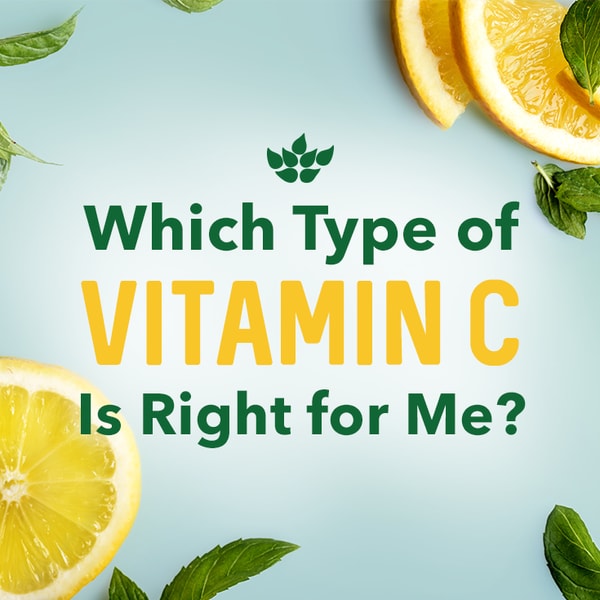Vitamin C is one of the most widely recognized nutrients. Mention it, and most people’s thoughts immediately jump to immune support. And that’s totally understandable, considering it’s essential for supporting the body’s natural defense system! Vitamin C also acts as a potent antioxidant that promotes cardiovascular health.
Given the benefits and the economical price point, it’s unsurprising that vitamin C is a popular supplement. Like many other supplements (calcium or magnesium, for example), there are many forms of vitamin C available. Which form is the best form of vitamin c for you?
What Is Bioavailability?
Bioavailability describes the amount of a substance that enters your blood and lymphatic system so it is able to have an impact on your body and your health.
Naturally, you may wonder which vitamin c is best absorbed? Let us break it down for you.
Does Vitamin C Type Affect Bioavailability?
Vitamin C is also known as ascorbic acid, which is the form used in most supplements.
However, there are other forms of vitamin C, including:
- sodium ascorbate (a mineral ascorbate)
- calcium ascorbate (a mineral ascorbate)
- other mineral ascorbates (it’s a long list!)
- ascorbic acid with bioflavonoids
- combination products that blend different forms
Let’s stop right there before the list gets too long—regardless of the form of vitamin C, their bioavailability is very similar. Although some singular studies show minor differences, the body of research surrounding vitamin C supplementation reflects that absorption remains high no matter which form you choose.
One quick note about mineral ascorbates: remember that if you opt for these forms, you’re getting more than just vitamin C. Always check labels to see how much vitamin C/ascorbic acid and how much of other minerals are in each dose so you can factor that into your overall supplementation.
Synthetic vs. Natural Ascorbic Acid
Ascorbic acid occurs naturally in many fruits and vegetables, so you can get your daily vitamin C intake from foods, too! But many people wonder if the bioavailability differs between ascorbic acid created in a lab and the ascorbic acid in your morning glass of orange juice.
Synthetic and natural ascorbic acid are chemically identical. There are no known differences in the bioavailability of vitamin C.
Glad we cleared that up. So whether you get your vitamin C from bell peppers (surprisingly high in vitamin C!) or a supplement, you’re set. But it’s worth noting that eating bell peppers and other fruits and veggies will provide way more nutrients than vitamin C alone!
Very High Doses ≠ More Bioavailable Ascorbic Acid
The bioavailability of supplemental vitamin C only becomes suspect at higher doses. For people supplementing vitamin C at the normal recommended intake (85–90 mg per day), bioavailability is high. However, the body carefully controls the amount of ascorbic acid circulating in your system throughout the day, excreting any excess. Therefore ingesting 1,000 mg or more a day does not equate to more bioavailable ascorbic acid in the body.
The good news is vitamin C deficiency is very uncommon. Peppers, citrus fruits, and even baked potatoes are easily obtainable food sources of vitamin C. Smokers and those regularly exposed to secondhand smoke, people with a severely limited diet, and individuals with health conditions that inhibit absorption of vitamin C may need increased supplementation.
For those who need very high doses of vitamin C, liposomal vitamin C is an option. Liposomes are tiny microscopic “bubbles” formed by phospholipids that act as carriers to deliver active agents right into cells and tissues. This is meant to provide optimal bioavailability for very high doses.
Supplementing vitamin C doesn’t have to be confusing—luckily, this is one of the most straightforward nutrients. If you still have questions regarding vitamin C supplements, fire away below.
Sources:
- ods.od.nih.gov
- lpi.oregonstate.edu
Do you supplement with vitamin C?




